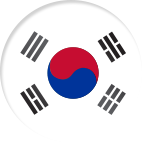Each country has different policies related to orphan drug, but is giving favor for orphan drug development.

United States
There is no support of medical expenses for rare diseases but orphan drug development is politically being supported as following.
· After the Orphan Drug Act (ODA) law came into effect in 1983, benefits for development of orphan drugs included tax deduction, exemption of patent commission, granted market exclusivity for 7 years for the first drugs, granted benefits for designation of expedited programs such as fast track designation, breakthrough designation, accelerated approval pathway, and priority-review designation.
· Installed office of orphan products development (OOPD) within FDA for clinical research support in research design and protocol development for development of orphan drugs.
· NIH supports development of orphan drugs through Therapeutics for Rare and Neglected Disease (TRND) program of The National Center for Advancing Translational Sciences (NCATS).

Japan
The government has been supporting patients with rare diseases for 40 years since the Rare Disease Act in 1972, by ‘therapeutic research for particular diseases’ and ‘counterplan research for particular diseases.
· The ‘therapeutic research for particular diseases’ supports treatment and cure for patients by reducing part of the medical expenses with the condition of collecting the patients’ clinical information for the purpose of developing and supplying medical treatment techniques for rare diseases.
· The ‘counterplan research for particular diseases’ supports researches for the cause, diagnostic method, and treatment method of rare diseases. Recently, the researches were performed on the 110 types of diseases designated as rare diseases

Korea
Strengthened the policy for rare diseases for coverage increase in the 4 big severe diseases (cancer, cardiac disorder, cerebrovascular disease, rare and intractable disease), which was a public pledge of the Park Geun-hye administration in 2013.
· Among the support for rare and intractable disease, the expansion for category of covered charges in the Ministry of Health and Welfare led to support in 134 kinds of diseases.
· Starting from 2011, the Ministry of Food and Drug Safety designated orphan drugs as drugs that need emergency approval due to the small number of subjects of application and absence of appropriate alternative drug. It has exempted part of the data (evaluation on safety and efficacy) needed for application for approval, and expanded the designation criteria as preferential and prompt evaluation compared to other drugs.
· The Korea National Institutes of Health expanded the support for early diagnosis for rare diseases and severe diseases.
- Started the support for ‘clinical research network’ in 2013, as the support for research development of rare and incurable disease expanded.
– Started the gene diagnosis service for 17 diseases in 2012 at the rare and incurable disease center for medical services that do or do not include insurance coverage.
– Established a ‘help line’ information contents for rare and incurable disease in 2006 to provide information about 1,030 types of diseases.
*Source : Biotechnology policy center 「BioINdustry No86. Status and prospect of orphan drug」
http://www.bioin.or.kr/board.do?num=247577&cmd=view&bid=watch&cPage=1&cate1=all&cate2=all2

